Tehran-Moscow relations at historic peak, says Iran
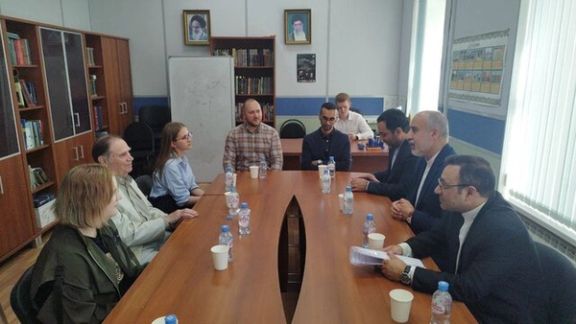
In a move to bolster their strategic alliance amid ongoing tensions with the West and extensive sanctions, Iranian officials are deepening ties with Russia.

In a move to bolster their strategic alliance amid ongoing tensions with the West and extensive sanctions, Iranian officials are deepening ties with Russia.
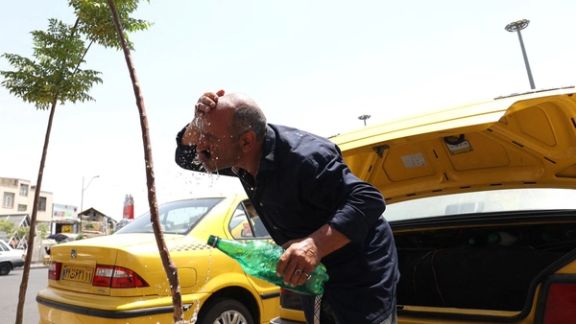
Iran is facing its most severe heatwave in 50 years causing nationwide power outages as the government struggles with billions of dollars' worth of deficit.
Mostafa Rajabi Mashhadi, Managing Director of Tavanir, the state electricity company in charge of the national power grid, emphasized the need for $5 billion annually to sustain the electricity production cycle.
However, Reza Khatibi, an economic journalist, told Iran International that this is only part of the issue. While the annual cost to meet electricity demand is $5 billion, an additional $3 billion is needed due to Iran's energy imbalance, totaling $8 billion annually.
“However, these budgets cannot be met due to Iran's limited revenue impacted by sanctions and the government's prioritization of funding proxy groups in the region. This economic pressure is making it increasingly difficult to cover energy costs, with the future and well-being of the people not being the country's priority,” Khatibi said, highlighting the severity of the economic challenges.
Media sources report that the residential grid experienced unannounced power cuts despite temperatures exceeding 50 degrees Celsius (122 Fahrenheit). In some central Tehran areas, power cuts have extended to four hours, up from the previous maximum of two hours during hot seasons. The power supply situation in southern provinces is even more critical, leading to the closure of some government offices. The outages have significantly disrupted industries, causing considerable disruption and eliciting complaints from business owners.
Several Iranian citizens have shared videos and voiced their frustrations regarding the daily power outages disrupting their lives. The blackouts have caused significant issues, from difficulties caring for patients at home to financial losses for businesses impacted by the interruptions.
One Iranian sent Iran International a video stating, "We have a severely ill patient at home who needs electricity for medical care equipment. These power outages have had a devastating impact on us, crippling our daily lives and creating severe hardships."
Another video received by Iran International showed a citizen in Shahriar, West of Tehran, expressing concern about daily power cuts, saying, "The government is exploiting the people, and no one is coming to our aid."
Strangled by global sanctions for its ongoing nuclear program, another Iranian commented on the power shortage: "For years, we've been sanctioned over nuclear energy, yet the Islamic Republic hasn't produced a single volt of nuclear power for electricity."
Dalga Khatinoglu, an oil, gas, and economic analyst, told Iran International that since 2011, the government aimed to add 5,000 megawatts to the country's electricity production capacity annually. Still, even half of this target has yet to be achieved.
“Iranian governments have failed to meet their commitment to a seven percent annual increase in electricity production. Iran should currently produce 500 terawatt-hours annually, but it produces less than 400 terawatt-hours," Khatinoglu said.
"To cover this deficit with imports, $3 billion per month is required, but if the money were available, the neighboring countries lack sufficient surplus electricity,” Khatinoglu explained.
Iran experiences a 20 percent electricity shortfall in summer, and annual electricity consumption increases by 5-7 percent. "Even doubling electricity production growth would only prevent the shortfall from worsening,” Khatinoglu added.
Official statistics indicate that 13 percent of Iran's electricity is lost during transmission and distribution due to an antiquated grid. This amount equals the total electricity the steel industry uses, which is a significant source of export revenue.
Many of Iran's power plants also operate inefficiently on gas or steam. Rather than modernizing the grid or upgrading to efficient combined-cycle plants, the government has opted for temporary measures such as adjusting office hours and imposing industrial power restrictions.
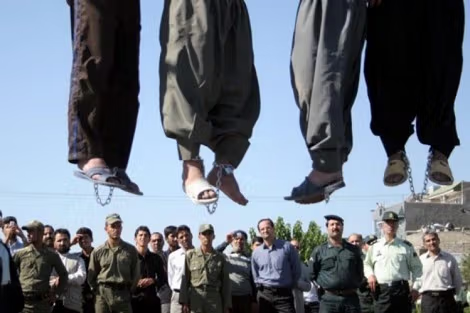
At least 266 prisoners were executed across Iran during the first half of 2024 according to rights group Hengaw as Iran's execution spree continues.
Prisoners included 72 Kurds, 42 Turks, 32 Balochs, 23 Afghans, 10 women, and one child, as religious and ethnic minorities continue to be among those most persecuted in the country. The majority of the charges were drug related offences.
It follows a record year of executions in Iran last year with over 850 carried out as the government quashes dissent.
Globally, a total of 1,153 executions were recorded last year, with Iran responsible for 74% of these and Saudi Arabia for 15%, according to rights group Amnesty International.
Amnesty's report titled "Don't Let Them Kill Us", called for urgent international intervention to halt the surge in executions, which it describes as transforming Iranian prisons into grounds for mass executions.
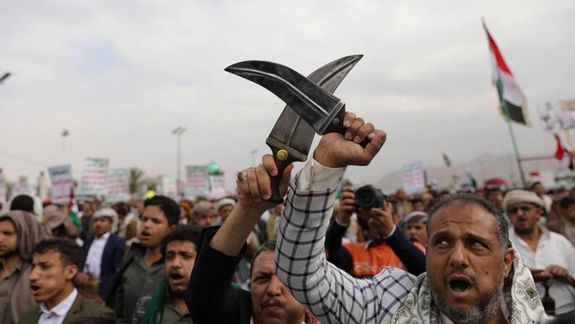
A team at the Washington Institute has revealed a campaign of misinformation which is emboldening the Iran-backed Houthi militia amid its Red Sea blockade that has disrupted international shipping.
Noam Raydan, a senior fellow at the Washington Institute, said “the group has been projecting power through the effective use of misinformation” which began with its maritime campaign in November, with multiple unsupported claims of attacks since.
“The group knows its influence to the extent that even when some of its claims about maritime attacks are false. They don't care because they know their growing audience will believe them anyways,” she said.
While the Houthis have had direct hits that severely damaged some commercial ships and killed and wounded international seafarers, there are many attacks which have not been independently verified, with others totally denied.
“With respect to MSC Patnaree III, there's no evidence it was hit, but what we have is data from July 7 that shows Greek frigate HS PSARA engaged four UAVs while providing close protection to a commercial vessel in the Gulf of Aden,” the research shows.
Two UAVs were downed while the rest changed course, according to EUNAVFOR ASPIDES. While the commercial vessel was not identified, it could have been MSC Patnaree III.
One of Iran’s most powerful and well-armed groups with sophisticated weapons and training, she said the Houthis’ maritime operation, instigated by Iran’s Supreme Leader, has been “well-planned". In early November 2023, Ali Khamenei called on Muslim nations to blockade Israeli trade and two weeks later the Houthi attacks began.
“This campaign has become more lethal, and different weapons have been used, with a notable increase in the use of USVs since June 5,” she noted. It has succeeded in massively disrupting a major trade passage with at least 50 percent of companies using it now rerouting on longer and more expensive routes.
“The group has indeed proven that it can disrupt maritime traffic in key shipping lanes, and this threat will continue to grow. This will require a more unified deterrence front with a farsighted attitude that includes diplomacy,” Raydan said.
In research conducted with Farzin Nadimi, a Senior Fellow with The Washington Institute, specializing in the security and defense affairs of Iran and the Persian Gulf region, they revealed that while the Houthis continue to claim attacks in the Red Sea, including the Israeli port of Haifa, as Israel continues to down drones from both Yemen and Iraq, particularly targeted towards Israel’s southern port city of Eilat, much is to be questioned.
“Such claims, based on available information, appear to be just part of the Houthi propaganda campaign for now,” the research assessed while the Houthis coordinate a propaganda campaign alongside proxies such as Hezbollah in Lebanon which continues to threaten Israel’s norther port city of Haifa among other targets.
“At least one shipping company has denied a Houthi claim of an attack on one of its vessels in the Mediterranean,” said the researchers.
In May, the Houthis claimed they had targeted the Liberia-flagged LPG tanker Essex (IMO 9403877) in the Mediterranean Sea, a ship linked to the UK-based company Zodiac Maritime, but controlled by Israeli-born shipowner Eyal Ofer.
However, the research shows that according to shipping data from MarineTraffic and other sources, the tanker was not in the area and in fact it was in Egypt on May 23 "and appeared to be operating normally."
Also, that month, the Houthis claimed they targeted Greece-flagged oil/chemical tanker Minerva Antonia (IMO 9380398) in the Mediterranean, but no independent sources confirmed the incident.
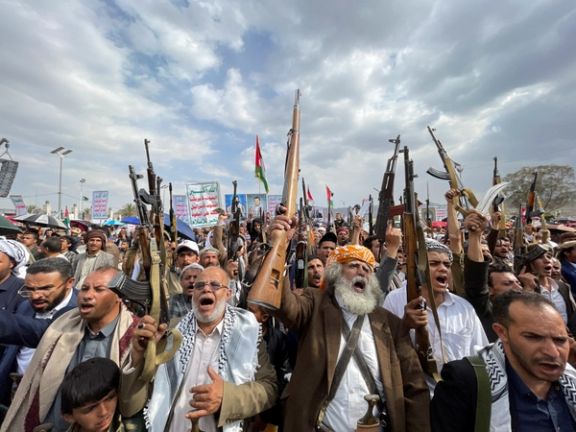
“Based on MarineTraffic data, as of July 1, 2024, this tanker was sailing in the northern Red Sea heading to Egypt’s Ain Sokhna after a visit to the Saudi Red Sea port of Yanbu, a sign that the tanker was operating normally,” the research showed.
The Houthis claim to be fighting in allegiance with Iran-backed Hamas in Gaza amid its war against Israel, the blockade beginning with a dramatic capture of the Galaxy Leader in November, along with taking 25 seamen hostage.
While it first aimed to target Israeli linked ships, it has since become a global campaign of terror.
The boldness of the Galaxy Leader attack has given the group a degree of credibility which allows them to continue a campaign alleging attacks even beyond their own range of capability.
Last month, the Houthis made more allegations about attacking vessels in the Mediterranean, which they said was in cooperation with Iran's proxies in Iraq, again denied by shipping operators.
On June 22, the Houthis claimed that they attacked four vessels at Israel’s Haifa port, which was never independently verified, including the Luxembourg-flagged livestock carrier Shorthorn Express (IMO 9167318) in the Mediterranean route to Haifa.
The owner of the Shorthorn Express, Netherlands-based Vroon, flatly denied the claim, telling TradeWinds: “The company would like to stress that [the] crew, its cargo and the vessel are safe and no signs of an attack were noticed. Shorthorn Express is, meanwhile, proceeding [on] its voyage to its port of destination.”
The livestock carrier was at the Haifa port, but shipping data from MarineTraffic showed no unusual movements. “As of July 2, the vessel had left Israel and was sailing in the direction of the Irish Sea, a clear sign that it was operating normally,” the researchers pointed out.
While the Houthis have a wide range of weapons such as ballistic missiles and air-breathing cruise missiles and drones, including the group’s claims that its Sammad-4 and Waid one-way attack drones (OWADs) have ranges in excess of 2,000 kilometers, it is not likely that the Houthis have an OWAD that can reach much beyond 1,000 kilometers.
This makes an attack on Haifa’s port facilities or maritime targets in the East Mediterranean directly from Yemen using drones and anti-ship missiles highly unlikely.
“The distance from Haifa to known Houthi drone launch sites is 2,000 kilometers in a direct line, and about 2,200 kilometers for a more realistic flight path along the Red Sea median line and eastern Sinai desert,” said the research team.
While they could launch from Iraq in cooperation with Iran’s local proxies there, reducing the range required to reach Haifa to 500 kilometers or less, the IRGC would need to play a major coordinating and logistical role in such a franchising operation, they highlighted. While not impossible, it raises questions as to its voracity.
What the Houthis do not highlight, is the success of the interception operations with intelligence sharing via datalink, emails, text messages and telephone hotlines. “Israeli air and missile defenses and those of other countries in the region, as well as the United States, have proved very capable of intercepting any such rocket and air-breathing threats against Israel,” the researchers note.
But Iran's proxy battlefront against Israel could get more complex if it becomes more coordinated with Lebanon’s Hezbollah which has been in a low-level conflict with Israel since October 7 when Hamas invaded Israel.
The biggest of Iran's proxies has launched at least 3,500 projectiles towards Israel since the Gaza war began in a bid to overwhelm Israel’s defenses from the north while the Gaza conflict rages in the south.
The research team warned: “Hezbollah is not known to have anything more than Noor (C-802) and Nasr (C-704) radar-guided anti-ship cruise missiles in its arsenal, with a maximum range of 120 kilometers. However, it likely already has, or may soon have, almost any weapons in the arsenals of the Houthis or the Popular Mobilization Forces in Iraq.”
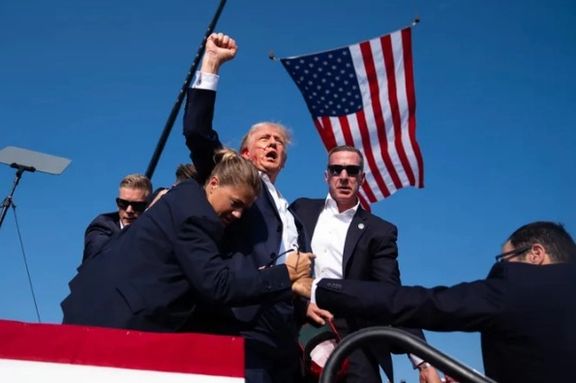
The assassination attempt against former President Donald Trump has shocked many Iranian political activists, who are carefully watching the American presidential election.
Exiled Prince Reza Pahlavi reacted with posting a tweet condemning the violent political act.
“I am shocked and dismayed by the assassination attempt on President Trump. I extend my best wishes to Mr. Trump and his family and pray for his speedy recovery. I also offer my condolences to the victims and the American people. Political violence has no place in democracies,” Pahlavi who is a leading opposition leader said.
Many other activists also posted comments on X, mostly expressing satisfaction that the assassination attempt failed and hoping that Trump would win in November and adopt a tougher stance against the Islamic government in Tehran.
Reactions from Iran were still muted early on Sunday, with some websites simply publishing the brief news of the incident without much comment.
However, the Iranian government and its inner circle watch the US election campaign with keen interest, as the re-election of Trump could mean renewed pressure on Tehran. Trump pulled out of the Obama-era JCPAO nuclear deal in 2018 and imposed heavy economic sanctions on Iran that are still in place. The Biden administration has not been vigilant in enforcing the oil export restrictions and the Iranian government fears that his return would mean more economic pressure.
A dissident commentator, Reza Taghizadeh, tweeted that the assassination attempt "was the last nail in the coffin of Biden's candidacy" and bad news for the Islamic Republic.
Others weighed in arguing that constant attacks on Trump and conservatives as "extremist right wingers" inevitably increase the likelihood of political violence.
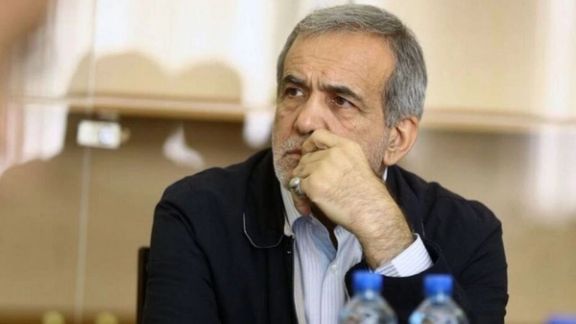
President Masoud Pezeshkian has entrusted the task of selection of three nominees for every position in his cabinet to five committees. Some names are mentioned more than others in Iranian political circles now.
The reform-oriented Pezeshkian’s proposed cabinet must first and foremost meet Supreme Leader Ali Khamenei’s criteria. Additionally, it should not alienate the array of political groups that supported him, nor the ordinary Iranians who voted for change. Furthermore, his proposed cabinet must secure a vote of confidence from a parliament dominated by ultra-hardliners and hardliners.
The president’s powers in the appointment of ministers and even deputy ministers of foreign affairs, interior, intelligence, and defense are particularly limited since these ministries are considered as Khamenei’s domain according to an unwritten law.
These officials are also members of several high state councils by virtue of their position including the Supreme National Security Council.
The following are some of the names flying around more than others in Iranian political circles and the media as nominees for the positions of foreign, interior and intelligence minister.
Foreign minister
Former Foreign Minister Mohammad-Javad Zarif campaigned relentlessly for Pezeshkian. He was largely believed to be offered a prominent position in the cabinet. Zarif announced that he has no intention of accepting any positions in Pezeshkian’s cabinet including the position of first vice president. Reports indicate that he will be a top strategic advisor to the president.
Nevertheless, Zarif who advocates normalization of relations with the West and revival of the 2015 nuclear deal was likely to be fiercely opposed as foreign minister, particularly by supporters of rival presidential contender Saeed Jalili in the parliament. There are some suggestions that he may be appointed as Iran's UN ambassador.
His former deputy Abbas Araghchi who also served as a member of his nuclear negotiation team is among diplomats whose name is most brought out in discussions over the appointment of Pezeshkian’s foreign minister. Araghchi is currently the secretary of the Strategic Foreign Relations Council, a think-tank formed by Khamenei’s order.
Former foreign minister Ali-Akbar Salehi under populist Mahmoud Ahmadinejad (2011-2013) is another candidate suggested for the post. Salehi headed Iran's Atomic Energy Organization from 2013 to 2021.
Intelligence minister
Candidates for the position must be qualified to pronounce independent interpretation of the law Sharia (ijtihad).
One of the figures that meets the criterion is Mostafa Pourmohammadi, the only conservative approved to run in the snap elections. The former deputy intelligence minister who served as minister of justice under Hassan Rouhani from 2013 to 2017 surprised the public during election debates where he defended better relations with the world, more social freedoms for Iranians, and an end to Internet bans.
Pourmohammadi’s name is tied with the three-person committees established by the state to oversee the purge of political prisoners in Iranian prisons in 1988.
Interior minster
Iran's new interior minister will be facing many challenges including the issues of hijab enforcement and illegal Afghan immigration.
Some Iranian politicians and journalists claim Pezeshkian has chosen politician and former lawmaker Elias Hazrati as interior minister.
Hazrati served as a division commander in the Revolutionary Guards (IRGC) during the Iran-Iraq War (1980-88) and is currently a member of the central council of the reformist Etemad Melli Party formed by Mehdi Karrubi, one of the leaders of the Green Movement in 2005.
Mostafa Pourmohammadi and Mahmoud Alavi who served as intelligence minister under moderate Hassan Rouhani from 2013 to 2021 have also been suggested as a possible candidate. The latter, also a conservative, supported Pezeshkian in the elections and appeared alongside him at one of the campaign meetings. Alavi is a former member of the Assembly of Experts.
Some have also suggested former reformist lawmaker and politician Majid Ansari as a possible nominee. Ansari, the secretary of the reformist Combatant Clerics’ Association, served as the legal and parliamentary deputy in the cabinet of the reformist Mohammad Khatami and is currently a member of the Expediency Council by Khamenei’s appointment.
During a meeting at the Institute of Oriental Studies of the Russian National Academy of Sciences in Moscow, Iranian Foreign Ministry Spokesperson Nasser Kanaani emphasized the importance of the relationship.
"We are now on the path of fighting the totalitarianism and unilateralism of the Western governments led by the United States," Kanaani stated.
Kanaani hailed the current state of Iran-Russia relations as one of the most robust in their history.
"Relations between the two countries are in one of the best historical periods" he reiterated.
He did not mention issues of contention such as Russia's siding with the United Arab Emirates over islands Iran claims as its own.
He also did not mention the stalled Iran-Russia cooperation agreement which Iran has gone to great lengths to say is merely under review.
Emphasizing enhancing bilateral ties, Kanaani highlighted said this week, "We fully support the expansion of cultural relations between our two countries".
A recent report by Chatham House, a British think tank based in London, suggested that the future of Iranian-Russian relations hinges on the stance of the next Iranian president.
Iranian president-elect, Masoud Pezeshkian, set out his government’s foreign policy in , praising eastern powers and attacking the west.
Iran has become a major military partner for Russia, supporting Putin in the war on Ukraine by providing drones used on civilian areas. It has resulted in global sanctions for both countries.